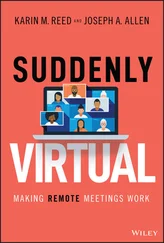Later he added, “They wanted to give me their soul and their might, but I didn’t know how to accept anything from them.”
ERNST’S RECOVERY IS SLOW, AND IT HAS ITS UPS AND downs. When the pain attacks him, he grits his teeth and bites his lip. He struggles with it and receives praise from the nurses and doctors. One time Irena was about to tell him, We’ll light a memorial candle on the anniversary of your parents’ death. They will come back and forgive you. Parents always forgive their children . When Irena has taken care to keep her house properly maintained and has gone to prostrate herself on her parents’ graves on the anniversaries of their deaths, she knows that ghosts won’t disturb her rest at night.
Irena has noticed that since Ernst has been in the hospital, his speech has been flowing in torrents; whenever the pain lets up, he talks about his parents, about his home, and about the distance between the house and the grocery store. The narrow space disturbs him. Irena doesn’t know how to respond or what to do to calm his spirit. On Sabbath eve, when she lights the candles, she prays and asks Ernst’s parents not to be angry with him, to speak slowly to him. He will listen to everything they say, but in the state he is in they mustn’t be angry with him. One evening, Irena went to Ernst’s house, dusted, washed the floor, and before leaving lit a memorial candle. Perhaps his parents would hear of this and forgive him.
Ever since Ernst told her about his parents at length, Irena has known no rest. She listens to his thoughts, and she keeps trying to reach his parents in another way. She tries so hard that she can see them before her eyes: they are tall people, somewhat stooped, and wrapped in silence. There is no anger in their eyes, just the perplexity of forgiveness. When they draw near to Irena, she wants to say to them: Ernst is looking for you. He has been looking for you for years. What should I tell him? They look back at her, and their confusion increases. But they have no words.
Of course Irena tells Ernst nothing about these secret contacts; nevertheless, he seems to feel that she is trying very hard to raise his parents up from the depths. Every morning, when he opens his eyes and sees Irena, he says, “Why don’t you go to sleep?”
“I slept.”
“But you’re always at my side.”
“I slept for three hours straight.”
Sometimes it appears to Irena that he, too, is trying to reach his parents with all the strength of his pain, and she wants to tell him, There can be no doubt that you’ll reach them one day. The path is unpaved, but longing can reach any place. You aren’t alone. There’s someone watching over you . Ernst is aware of her efforts, and he says to her, “Thank you, Irena.”
“What are you thanking me for?”
“For sitting by my side.”
“I’m not doing anything.”
“You’re doing more than I deserve.”
“You deserve every help.”
Sometimes Ernst speaks about his writing, about the many nights he has invested in digging up the wrong wells.
“For years I didn’t understand why the wells were dry. I thought that if I dug deeper, I’d find a living spring.”
Once he told her, “I have to go home urgently.”
“To which home?”
“To my parents’ home.”
You’ll go there. You have already been going there , she was about to say, but she didn’t say it.
Irena knows that Ernst doesn’t like useless consolations, ornamental words, or hollow expressions. Once he told her something that she will never forget: “Words that aren’t connected to pain aren’t words, but fluff. For so many years I went to places where I didn’t belong, with words that didn’t grow from within me.” What did he mean by “words that didn’t grow from within me”? Irena wanted to ask. Ernst sensed this and said, “Words that don’t grow out of one’s pain.”
THERE IS ANOTHER SETBACK IN ERNST’S RECOVERY. THIS time it’s his heart. “When I get home, I’ll be a different man,” he says. How will he be different? Irena wonders. In any case, she will light a memorial candle in his house, too. Her parents were very particular about Holocaust Remembrance Day. They used to fast and sit at home next to the memorial candles and read memorial albums. When the Zalachov memorial album was published, they bought three copies. They sent one copy to their cousin in Bnei Brak and placed two copies in the bookcase. There were articles in the book about Zalachov before and during the war, and a long article about the survivors who gathered after the war.
Holocaust Remembrance Day was like Yom Kippur in their home. Irena’s parents weren’t particular about observing all the commandments. In fact, they kept only a few of them, but the few they kept gave the house an air of exaltation and secrecy. This was especially felt on Holocaust Remembrance Day and on Yom Kippur. There was always something of Irena’s grandparents in her parents’ ways, even in how they sat at the table or kept silent. They didn’t intentionally conduct themselves like their parents, but their parents’ mannerisms were stored up inside them. If they said a blessing, they did it the way their parents had done it.
“What are you thinking about?” Ernst surprises her again.
“About Holocaust Remembrance Day.” She doesn’t keep it from him.
“Is Holocaust Remembrance Day coming?”
“In a month.”
Ernst has noticed that Irena also speaks about the Holocaust with astonishing simplicity. There were years when he didn’t talk about it at all. He was convinced that writing about the Holocaust was impossible, forbidden. He found firm supporters for this opinion. The philosopher Theodor Adorno, for example, claimed that writing poetry after Auschwitz was “barbaric.” Ernst accepted this without challenge.
All the texts for Holocaust Remembrance Day sound clumsy to him, meaningless and, even worse, grotesque: a bunch of hacks and politicians spouting trite words, carrying torches, and glorifying the partisans. If that’s the way people talk about the Holocaust, then I won’t talk about it , he would say to himself. And indeed, he kept his silence.
When Ernst married Sylvia, he found a true partner in his feelings. She, too, had cut herself off from her parents and hated their tribe — its way of life and its beliefs. Every Jewish book, every custom — not to mention weddings and bar mitzvah celebrations, Simhat Torah, and funerals — drove her out of her mind.
“The Zionists talked about a free people, about normalcy. Where’s the freedom? Where’s the normalcy? Everything is done here as it was done in the shtetl,” she protested. Her physical beauty and her blunt language combined to give her a wild power. When their fights grew more frequent, first about trivial matters and later about his writing, Ernst felt that her hostility was full of poison.
One day he couldn’t restrain himself. “Monster!” he shouted at her. Sylvia gave as good as she got and screamed back at him. “You sickening skeptic! Incurable busybody! Paper eater!” Ernst had only one word, and he repeated it every time they fought: “Monster!” When she heard it, her mouth would fly open and a flood of invective would pour out. In time he was to say: “How could I have lived with that human beast?”
After Ernst separated from Sylvia, it seemed to him that his writing, which had proceeded hesitantly all those years, with infinite drafts, would now come together and flow. There were a few encouraging signs, but they proved to be only ephemeral. Ernst’s imagination drifted in a chaotic, insubstantial world. Every time he thought about his parents or the grandparents who lived in the Carpathian Mountains, he would push their memory aside.
Читать дальше












